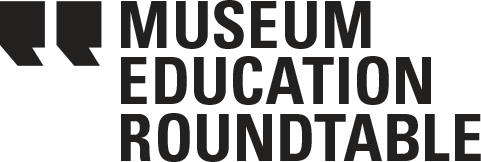Museum Education Impacts: Advocacy 101
SPRING 2018 VIRTUAL SPECIAL ISSUE
Guest Editors: Brooke DiGiovanni Evans and Meg Winikates
Readers of, and writers for, the Journal of Museum Education come from all over the world. In some countries, the case for state support for museums and related organizations is understood. In others, it requires repeated efforts, clear arguments, and stories that stand out from the crowds of other advocates and their causes. In the United States, where national politics especially seems ever more divisive, museums have the advantage of being a topic on which nearly everyone agrees, regardless of party lines. Culture, heritage, and education are topics everyone says they support, whether or not they’re willing to fund them.
Museum professionals are comparatively new to the world of advocacy, and many avoid it for fear of running afoul of the rules governing lobbyists or from concern that they might threaten their organizations’ non-profit status. Fortunately, the majority of what you are likely to want to do: presenting your case with supporting evidence about a cause you care about, is considered advocacy. Only saying “and therefore we want you to vote this way” is lobbying, and saying it about a few bills in the course of a meeting or two over a year is not going to run afoul of the limits on lobbying placed on non-profits. The shorthand rule is that causes are safe, people are not. As long as you do not campaign for (or against) a particular candidate using your organization’s resources, your non-profit status is safe. Even once committed to doing advocacy, it can be daunting to think about where to start and how to make your case. This collection of articles from recent issues of the Journal of Museum Education is designed to help.
[download id=”1333″]
Making Your Case
| Year | Article Title | Authors |
| 2010 | What is Your Museum’s Economic Footprint | Laureen Trainer |
| 2014 | Why Creativity: Articulating and Championing a Museums Social Mission | Cindy Meyers Foley |
| 2015 | Don’t Let Your Message Die on Delivery! | Laureen Trainer |
Schools and Families
| Year | Article Title | Authors |
| 2016 | Museum-University Partnerships Transform Teenagers’ Futures | Sarah W. Rose |
| 2014 | Museums, Universities and Pre-Service Teachers | Susan K. Nichols |
| 2015 | Building Connections: Strategies to Address Rurality and Accessibility Challenges | Sara Hartman & Jennifer Hines-Bergmeier |
Health and Wellness
| Year | Article Title | Authors |
| 2016 | Health and Wellness in our Communities: The Impact of Museums | Brooke DiGiovanni Evans, Heather Serrill Johnson & Carole Krucoff |
| 2014 | Museum Education and Art Therapy: Promoting Wellness in Older Adults | Brooke Rosenblatt |
| 2016 | Museums and Health: A Case Study of Research and Practice at the Children’s Museum of Manhattan | Andrew Ackerman |
Veterans and Military
| Year | Article Title | Authors |
| 2016 | Healing and Empowering Veterans in a Botanic Garden | Barbara Kreski |
Accessibility
| Year | Article Title | Authors |
| 2016 | Engaging Children with Autism at Historic Sites: Developing an Audience Appropriate Curriculum | Ansel Lurio |
| 2016 | Accommodating Blind Learners Helps All Learners | Mary Ann Wojton, Joe Heimlich & Natalie Shaheen |
| 2017 | Supporting Transitions: Cultural Connections for Adults with Autism Spectrum Disorders | Aliza Greenberg & Sheri Levinsky-Raskin |
Climate and Environment
| Year | Article Title | Authors |
| 2016 | Green History: Reframing Our Past to Save the Planet | Andrew K. Jones |
| 2014 | Connecting Students Around the World Through a Collaborative Museum Education Program | Katie L. Gillespie & Leah M. Melber |
Race and Inclusion
| Year | Article Title | Authors |
| 2017 | Doing the Work: A Discussion of Visioning and Realizing Racial Equality in Museums | Radiah Harper & Keonna Hendrick |
| 2017 | Early Childhood Racial Identity: The Powerful Potential Role for Museum Programming | Anna Forgerson Hindley & Julie Olsen Edwards |

